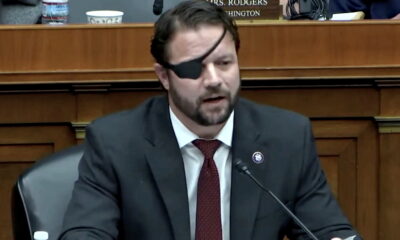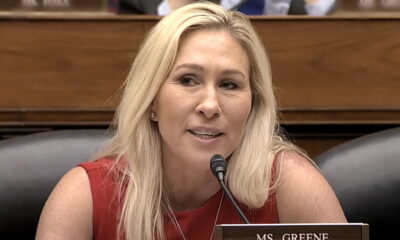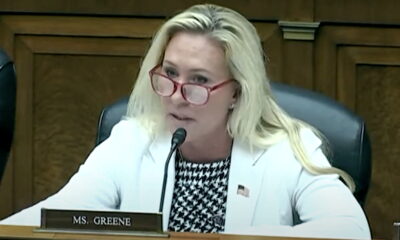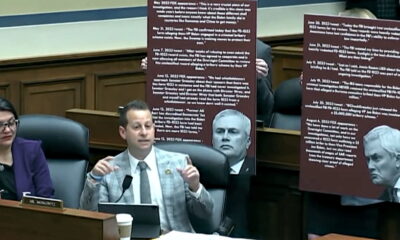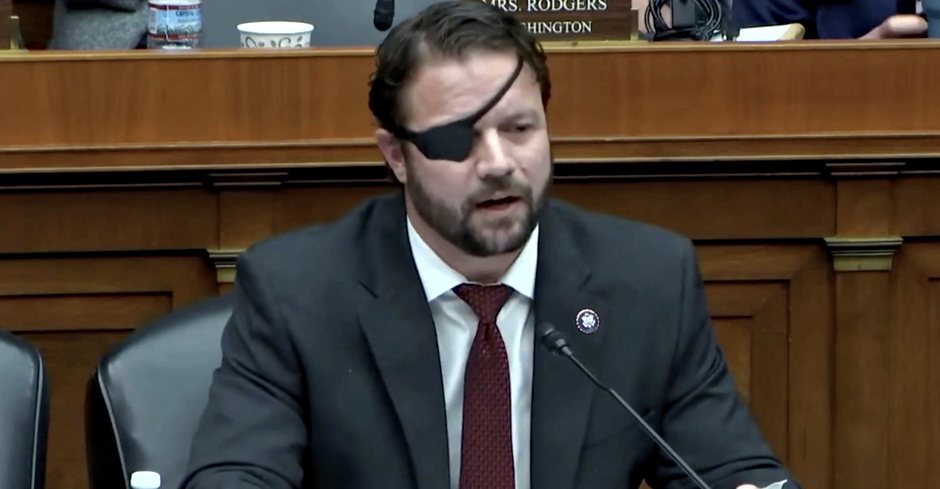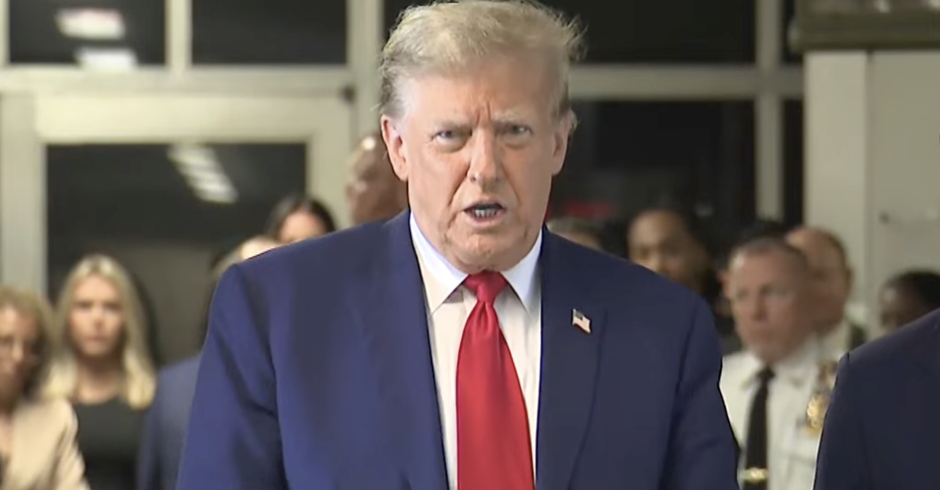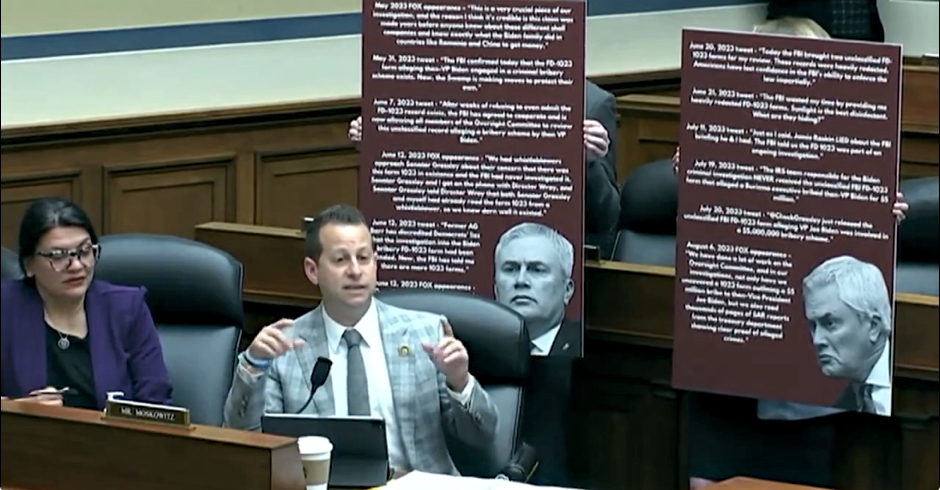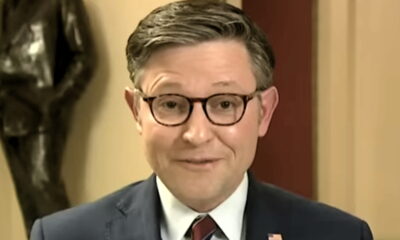News
‘I Didn’t Know You Had Families’ Mitt Romney Told Group Of Gay Parents in 2004
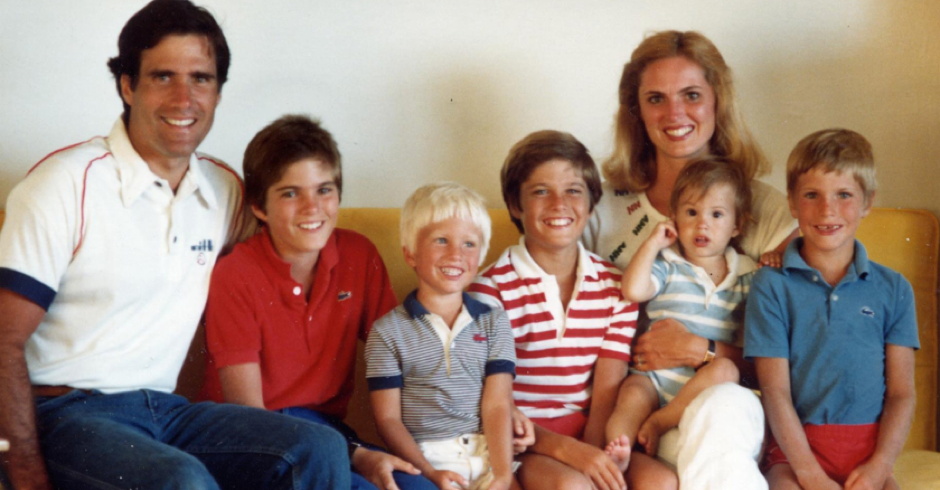
In 2004, then-Massachusetts Governor Mitt Romney succumbed to meet with a group of gay and lesbian parents who were trying to get him to follow that state’s supreme court ruling to enable same-sex couples to marry. Romney reportedly was unmoved after hearing their stories and why they needed the law to allow them to marry — to protect their families.
“I didn’t know you had families,” Romney told the LGBT parents in the group, standing in his office, according to an extensive article in Boston Spirit, a blog hosted by the Boston Globe’s website:
“It was like talking to a robot. No expression, no feeling,” recalls David Wilson, one of the plaintiffs in the case who met with Romney that day. “People were sharing touching stories, stories where you’d expect recognition in the other person’s face that they at least hear what you’re saying” that there’s empathy. He didn’t even shake his head. He was completely blank.”
Occasionally Romney would say something.
“I didn’t know you had families,” remarked Romney to the group, according to Wilson.
The offhanded remark underscored that Romney, the governor of the first state prepared to grant same-sex marriage, hadn’t taken the time to look at what the landmark case was really about. By this point the plaintiff’s stories had been widely covered by national media — in particular, Julie Goodridge’s heartrending tale of how her then-partner, Hillary, was denied hospital visitation following the precarious birth of daughter Annie. It was the ignorance of these facts — and Romney’s inaccurate, insensitive answer to her parting question, that pushed Julie Goodridge to her breaking point.
“I looked him in the eye as we were leaving,” recalls Goodridge. “And I said, ‘Governor Romney, tell me — what would you suggest I say to my 8 year-old daughter about why her mommy and her ma can’t get married because you, the governor of her state, are going to block our marriage?’”
His response, according to Goodridge: “I don’t really care what you tell your adopted daughter. Why don’t you just tell her the same thing you’ve been telling her the last eight years.”
Romney’s retort enraged a speechless Goodridge; he didn’t care, and by referring to her biological daughter as “adopted,” it was clear he hadn’t even been listening. By the time she was back in the hallway, she was reduced to tears.
“I really kind of lost it,” says Goodridge. “I’ve never stood before someone who had no capacity for empathy. It went behind flat affect. It was a complete lack of ability or motivation to understand other people.”
The extensive article, written by Scott Kearnan, notes too Romney’s decision to dismantle the Governor’s Commission on Gay and Lesbian Youth, created to “to specifically address youth-related issues like anti-gay harassment and teen suicide,” Kearnan writes:
At first Romney seemed as though he’d be an ally to the Commission, says Kathleen Henry, who chaired the Commission during Romney’s administration. Romney released official proclamations recognizing Youth Pride, and in his inauguration expressed the importance of defending civil rights regardless of, among other things, sexual orientation.
“I opened almost every meeting reading that [passage from Romney’s inauguration], like it was a prayer,” recalls Henry. “I’d say, ‘This is what our governor believes.’”
Then in May 2006, Henry got a phone call from Romney’s chief of staff. A Commission press release touting the Youth Pride parade had been sent out on stationery that included the governor’s name in its sidebar. This placed Romney’s name on the same page as the word “transgender.” He was not happy. He was going to shut down the Commission. Just like that. The end.
Henry’s heart sank. Suicide prevention programs, support for Gay-Straight Alliances (GSA), training administrators to establish “safe school” practices for gay youth — all of that was “flashing before my eyes,” says Henry, who was only hours away from a Commission fundraiser at the Omni Parker House when she received the call. Luckily, political allies leapt to the Commission’s defense, and within hours Romney reversed his order to dismantle the group. In response, Henry worked with the Massachusetts Legislature to hurriedly create the Massachusetts Commission on GLBT Youth, which would exist independent of the governor’s office.
Once that was established, Romney dismantled the original Commission as a redundancy. Then something strange happened. Henry’s phone rang again, it was Romney himself calling, and the tone was very different.
Kearnan’s article appears extensively researched and covers far more ground on Mitt Romney’s interactions with the LGBT community or anything remotely gay. Highly recommend you read and share.
Image: Mitt Romney and his family, circa 1984, via Facebook
Editor’s note: The Boston Spirit article, published on the Boston Globe’s website, was actually written by Scott Kearnan, according to Jim Lopata, who edited the Globe article and is the Editor In Chief of Boston Spirit. A previous version of this article credited Lopata, to whom the Boston Globe gave the byline.
Enjoy this piece?
… then let us make a small request. The New Civil Rights Movement depends on readers like you to meet our ongoing expenses and continue producing quality progressive journalism. Three Silicon Valley giants consume 70 percent of all online advertising dollars, so we need your help to continue doing what we do.
NCRM is independent. You won’t find mainstream media bias here. From unflinching coverage of religious extremism, to spotlighting efforts to roll back our rights, NCRM continues to speak truth to power. America needs independent voices like NCRM to be sure no one is forgotten.
Every reader contribution, whatever the amount, makes a tremendous difference. Help ensure NCRM remains independent long into the future. Support progressive journalism with a one-time contribution to NCRM, or click here to become a subscriber. Thank you. Click here to donate by check.
 |

